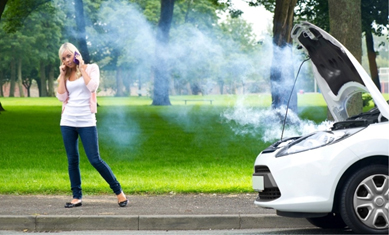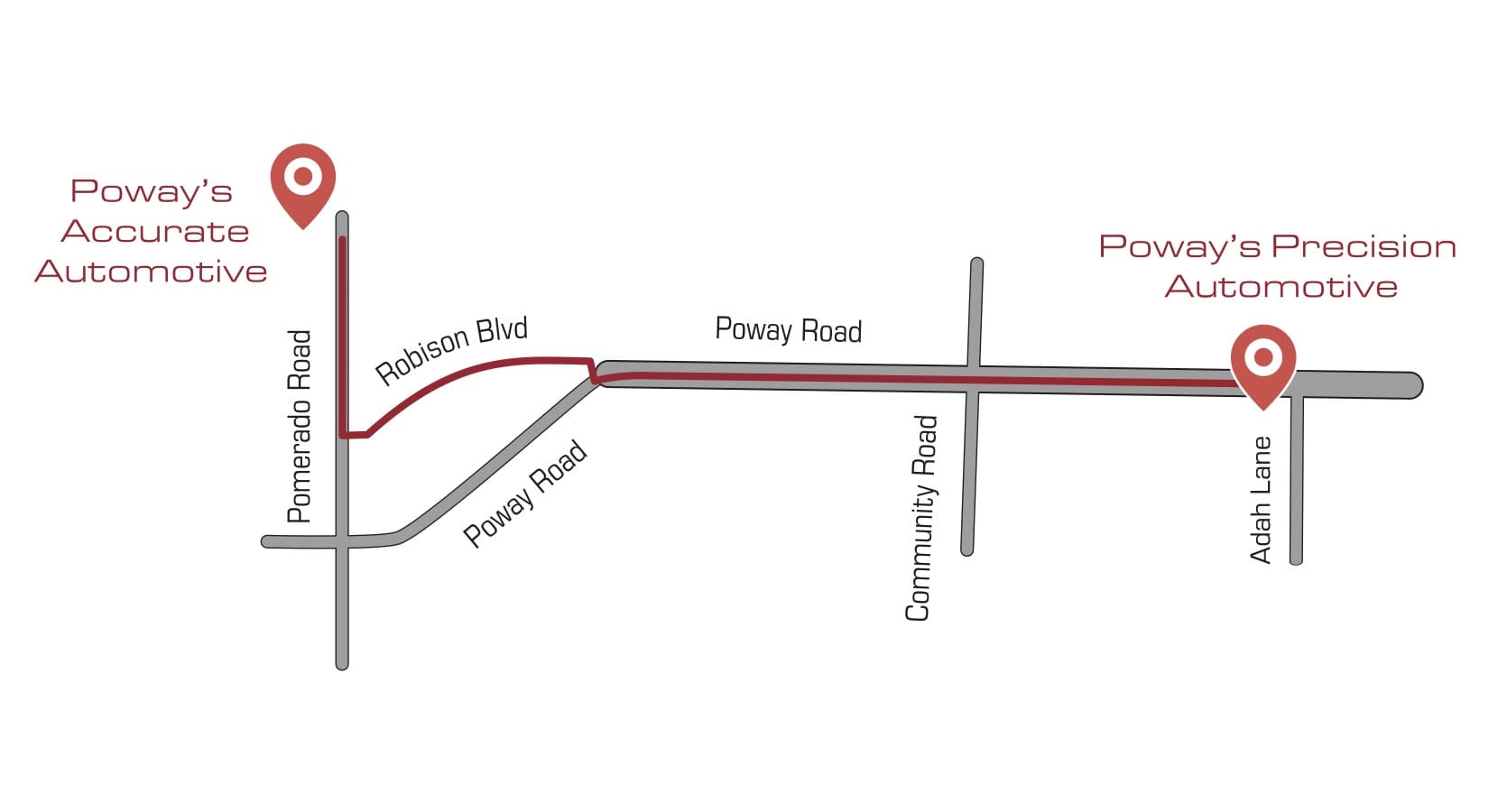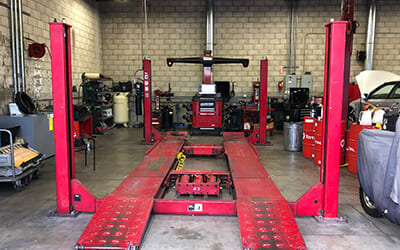Posted on 5/23/2024

Ugg, you find yourself on the way to work when your car begins to shudder and die, you thankfully can pull off to the side of the road, narrowly missing speeding traffic. You call AAA and hope they aren’t backed up and can get to you quickly, as you sit in the car waiting. And as you wait your mind wanders to what could be wrong and how much is this going to cost! “I hope it is just those old spark plugs my mechanic keeps pestering me to replace." While a vehicle that died while driving can be a number of things and would need to be diagnoses by a trained technician, there is always the possibility that an engine replacement will be necessary. If, via testing, the mechanic comes back saying the engine is condemned, what are your options. Many times, with older vehicles the engine replacement can exceed the re-sale value of the vehicle. However, this doesn’t necessarily make it a bad investment. (see our article on buying a new vehicle) Sometimes, depend ... read more
Posted on 1/31/2024

Do I Have to Service My New Car at the Dealership?The answer is NO! One common misconception in the automotive industry is that new cars MUST be serviced at the dealership to avoid VOIDING the Warranty. This is not the case, as the Magnuson Moss Warranty Act explains: “It is illegal for a dealer to deny your warranty coverage if someone else performs your maintenance." See the BAR (Bureau of Automotive Repair) recommended video on the Magnuson Moss Act. This act includes any repairs or modifications done to the vehicle as well. There are many benefits to using an independent repair shop versus going to the dealership. Personal Service: Dealerships tend to be high volume, there is not always a personal relationship. At Precision Automotive in Poway, CA we know our clients by name and strive to personalize our service. Warranty ... read more
Posted on 1/31/2024

The True Cost of Buying a New Car One of the questions we get quite often at Precision Automotive in Poway, CA is “Should I keep my car or get a new one?” With rising costs of repairs and the complexity of diagnosing and repairing modern vehicles, many of our Poway clients wonder if it is worth fixing their old car or buying a new one. Car companies do an excellent job marketing new cars. They sell the experience, luxury, reliability, safety, and of course, the warranty that comes with it. Most of all, they sell the prestige of having a new car to show off to your friends and family to look “successful.” The depreciation on a new car is scary, do your own research, but I have found the average new car depreciates 20% in the first year and 40% after 5 years! That is tens of thousands of dollars! But that is not all… there are a lot more hidden costs in new car ownership: If ... read more
Posted on 1/16/2022

It can be hard to tell if your car needs an auto repair service in Poway, CA. However, signs like a lack of acceleration or the engine making unusual noises may indicate that you need to get your car checked out as soon as possible. At Precision Automotive in Poway, California, we specialize in auto repair and maintenance, focusing on diagnostics inspections. Our team of knowledgeable professionals will help get you back out on the road quickly. The following list is full of signs you should look for that you need an auto repair service in Poway, California: Too Much Exhaust Smoke When your engine is misfiring, it can produce a large amount of smoke. The color indicated what component might be burning and how you should address the problem accordingly: blue means oil; white indicates coolant while black represents excess gasoline Check Engine Light The Check Engine Light is an ample wa ... read more
Posted on 6/3/2020

We are excited about a new addition to Precision Automotive! Poway’s Accurate Automotive has merged with Poway’s Precision Automotive and we have combined forces into one location to serve you better. This will allow us to combine resources like equipment, tools and staff as well as our highly skilled technicians all while reducing overall overhead. With these changes, you can expect the same great service you have always received, along with a much more efficient experience, and a better value for you, our valued customer. For those new to Poway's Precision Automotive, we are located at 13867 Poway Road. From Poway's Accurate Automotive, just head east on Poway road, make a right on Adah Lane. (We are on the corner) Make an immediate right turn into the parking lot; we share with Poway recycling. (See map below.) Our current hours are 8AM - 5PM, Tuesday through Friday, and 8AM - 4PM on Saturday. We are currently closed on Sundays and Mondays. Than ... read more
Posted on 4/7/2020

One request I get as the owner of Poway’s Precision Automotive is to install “OEM” parts. There is often some confusion about what an “OEM” part is and what it really means for your vehicle. If you are looking for an auto repair shop in Poway, or anywhere else, this is a good question to ask. OEM stands for Original Equipment Manufacturer. These parts are not necessarily the same as the genuine parts that come from the dealer, but they are from the same manufacturer that provided the parts to the assembly line when the vehicle was produced. Aftermarket parts are not made to the same standards as the factory uses and often are of low quality and do not last as long. There are so many different parts manufacturers these days that it is important to work with an experienced mechanic, like the certified technicians we have at Poway’s Precision Automotive, to make sure they are using quality parts in their auto repair shop. At Precision Automotiv ... read more
Posted on 4/7/2020

Many customers in Poway will ask me “what does my car need?” when the check engine light comes on. The short answer is we don’t know until we have one of our technicians at Precision Automotive hook up a scanner and do a complete diagnostic to get the full picture of what is going on with the check engine light. If you are driving around Poway and the check engine light is blinking, this usually indicates a misfire that can cause damage to the engine or emission system. If the check engine light is flashing, we don’t recommend driving the vehicle to prevent costly repairs. There are some auto parts stores that will check the car out with a check engine light code reader, but that will only generate a fault code and not tell you the check engine light meaning. The vehicle will still need to be diagnosed by a trained professional, to make sure that the fault is verified. In the long run this will save you time and money. If you live in Poway, o ... read more
Posted on 4/7/2020
Modern cars are very complicated, with many complex systems, and most often require a computer or scanner for proper communication to diagnose. Our technicians at Poway’s Precision Automotive are highly trained and fully equipped to handle these situations. The first step to proper diagnosis is to verify the concern. This usually involves a proper interview with the client to find out how and when the vehicle is acting up, and then have the technician be able to reproduce the symptom with the vehicle. The next step is to check for any DTC’s (diagnostic trouble codes) and perform a full vehicle scan. This will check all of the control modules for possible clues (not just the module that is having the problem). The next step is finding the proper resources and then testing the vehicle, which often includes hooking up test equipment and monitoring the system in question while it is malfunctioning. One of the most important pieces of this puzzle is verifying the ... read more
Posted on 4/7/2020

Is your vehicle consuming oil between oil changes, and requires you to add oil periodically? As manufacturers try to lower emissions, they use piston rings that reduce friction. As a result, the piston rings can easily become stuck with carbon deposits. This will cause lower compression and oil escaping past the piston rings into the combustion chamber, causing the vehicle to burn oil. Our premium oil change includes a cleaner that is ran through the engine before draining the oil to loosen up the existing carbon, then an additive is poured into the new oil to condition the new engine oil. This combats sludge in the engine, provides longer oil change intervals, and reduces engine oil consumption keeping piston rings from sticking. If your vehicle is using oil between oil changes and you notice the oil level is low, we advise you ask about our premium engine oil service. If you have been going extended intervals and not been following recommended maintenance schedules, we ... read more
Posted on 9/30/2019
Understanding how to check your vehicle's transmission fluid can help you in times where you feel like your transmission is underperforming, and aren't sure of the exact cause. While checking your vehicle's transmission fluid can inform you of whether low transmission fluid is an issue, we recommend bringing your vehicle into Precision Automotive if you ever suspect that there is a problem with your vehicle's transmission. Here is how to check your vehicle's transmission fluid: Put your vehicle in park and let the engine run. Locate the transmission fluid dipstick, which is usually sticking out of the transaxle. Pull out the transmission fluid dipstick. First, use a towel to wipe the fluid on the dipstick. Check the consistency of the fluid - it should be pinkish or clear and have an oil like consistency. Black or dark brown fluid that has chunks in it is a very bad sign and means you are due for a transmission fluid exchange. Wipe ... read more